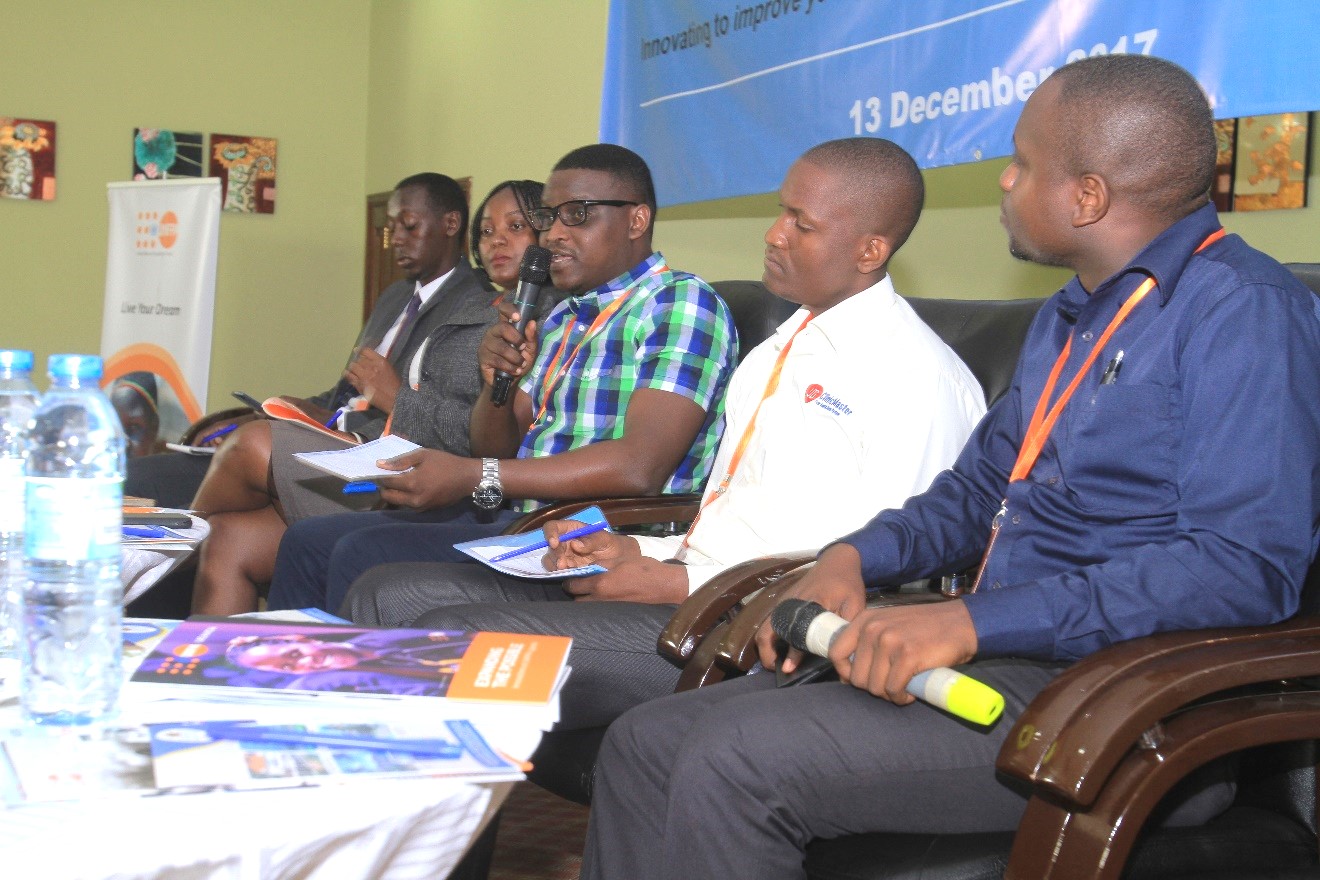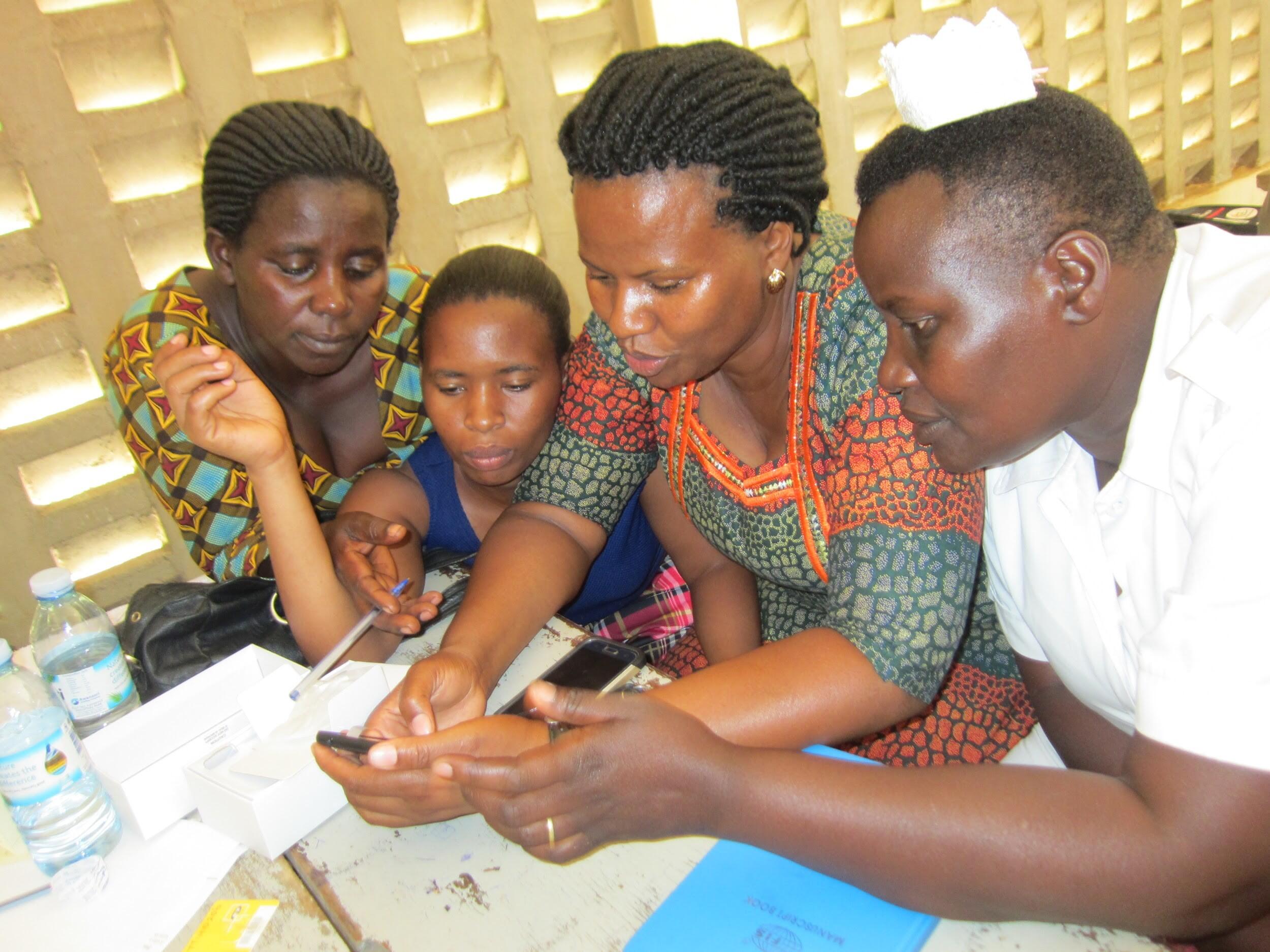In many rural communities of Uganda, teenage pregnancy is a common situation. Young mothers living long distances away from health centres often face life-threatening complications during and after childbirth. Especially for young people, access to Sexual and Reproductive Health information and services remains a challenge. This gap correlates with and manifests in increasing HIV infection rates, teenage pregnancies and unmet need for family planning.
However, hope is not lost with the ever-expanding and accessible innovations and technology landscape. According to the Uganda’s Communications Commission, in 2016, the country is estimated to have 16.7 million internet users, over half of which are mobile Internet subscribers. Mobile phones are even more common, with over 22 million subscribers nationwide. This has created an opportunity for many platforms and players to fill the gap with innovative ICT-based solutions paving the road to improve sexual and reproductive health (SRH) outcomes.
Driven by the increasing proliferation of mobile phones and connectivity in Uganda, eHealth platforms like GetIN, Ask Without Shame, Rock Point radio-programme and Sauti- Plus developed by young innovators provide multiple access points for SRH information and services. For instance, today, GetIN mobile app is saving rural teenage pregnant mothers from life-threatening complications in pregnancy and childbirth in the living in “hard-to-reach” areas of South western district of Kanungu.
Since its launch on 1 November, 2017, GetIN has mapped over 340 pregnant girls in Kanungu district’s 13 sub-counties. Midwives and community health extension workers (CHEWs) of Bwindi, Kanyantorogo, Mpungu, and Kambuga sub-counties expressed enthusiasm now that GetIN has simplified follow-up of pregnant girls, while improving communication and data collection. Millicent, one of the CHEWs, also reported that since the communities are now aware of GetIN, there has been an increase in pregnant girls and their families visiting hospitals and clinics for antenatal care and delivery.
eHealth forum
Uganda’s first forum on improving access to sexual and reproductive health (SRH) information through ICT-based innovations took place 13 December, 2017. The day-long forum in Kampala created a platform for discussion and the sharing of ideas regarding key issues, policies, best practices, and innovations for SRH information access for young people. Supported by United Nations Population Fund (UNFPA) through co-host Ministry of Health, the eHealth Forum on Adolescent and Youth Sexual and Reproductive Health (AYSRH) Information Access attracted 86 participants from key stakeholders, the private sector, academic institutions, civil society organizations, and young innovators.
Over 1,700 viewers joined the online live streaming to discuss issues on standardization and regulation of innovations, sustainability, leadership, coordination frameworks, information sharing, capacity building and resource mobilization.
“Challenges of inadequate infrastructure and capacity, combined with Uganda’s population growth rate at three percent, require us to turn towards new solutions,” said Dr. Charles Olaro, Director Health Services (Clinical and Community) at the Ministry of Health.
Mr. Joshua Okello, Innovations for Social Change Consultant at UNFPA, pointed out the need to combine old and new technologies. For instance, to address issues with Internet reliability, GetIN developers have built the app to be able to function offline.
Mr. Okello explained that visiting the pilot sub-counties made clear the importance of advancing digital literacy in the communities as a catalyst for community ownership and usage of digital interventions.
“If you want to impact (communities) and build a platform that has tangible impact, let’s look at users’ needs and contexts,” he said.
A recent GetIN follow-up visit demonstrated the importance of developing increased digital literacy in the communities. The developers also plan to use more familiar technology, such as Short Message Services (SMS), Unstructured Supplementary Service Data (USSD), and interactive voice response (IVR) to increase utilization of the new app.
eHealth as a game changer
The benefits of eHealth like improvement of healthcare operational efficiency and quality of patient care, have previously been documented and proven globally. eHealth projects can also enhance training of health workers, collect data and evidence, educate communities, and increase the overall health and wellbeing of the Ugandan people. Dr. Edson Muhwezi, Assistant Representative at UNFPA said that “technological transformation has the potential to change the way the health sector operates.”
He argued that eHealth in particular can expand the reach of health services both geographically and demographically. However, the success of the eHealth interventions like GetIN depends on the existing environment, specifically around policy and regulation, coordination, monitoring and evaluation, and general best practices in the field. In partnership with the government of Uganda, UNFPA is committed to reflect on key recommendations raised during the forum and strengthen the coordination and utilization of eHealth solutions to improve SRH for young people.
-Story by Mina Nozawa



